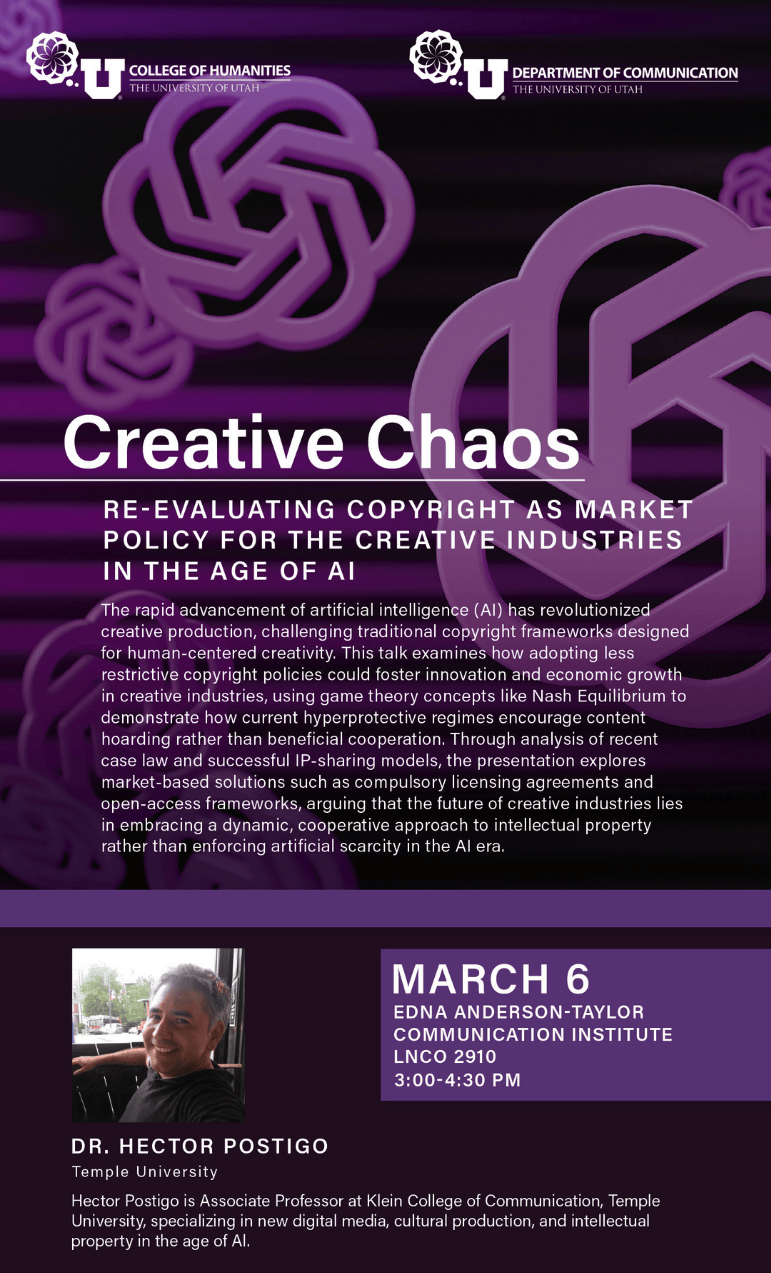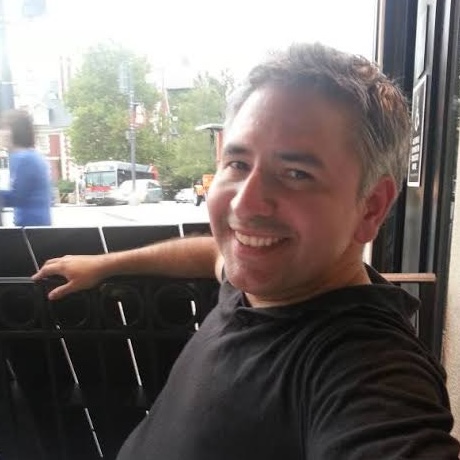Speaker Series
Speaker Series
Each year, the Communication Institute holds a series of 4-6 lectures offered by faculty from across our campus, the United States, and internationally. Speakers discuss how their research-in-progress addresses an issue of public concern at the intersections of communication and public policy. Follow the links below to review the collection of speakers that the Communication Institute has hosted.
Upcoming Speakers:

Creative Chaos: Re-evaluating Copyright as Market Policy for the Creative Industries in the Age of AI
Date: Thursday, March 6, 2025
Time: 3:00 - 4:30 PM
Location: Edna Anderson-Taylor Communication Institute, LNCO 2910
The rapid advancement of Artificial Intelligence (AI) has revolutionized creative production, challenging traditional copyright frameworks designed for human-centered creativity. This talk examines how adopting less restrictive copyright policies could foster innovation and economic growth in creative industries, using game theory concepts like Nash Equilibrium to demonstrate how current hyperprotective regimes encourage content hoarding rather than beneficial cooperation. Through analysis of recent case law and successful IP-sharing models, the presentation explores market-based solutions such as compulsory licensing agreements and open-access frameworks, arguing that the future of creative industries lies in embracing a dynamic, cooperative approach to intellectual property rather than enforcing artificial scarcity in the AI era.
About Dr. Postigo

Hector Postigo's (Temple University) research focuses on new digital media and cultural production both large and small. His work has centered on two areas of inquiry in cultural production. The first interrogates notions of value, participation and “free” labor on the internet. For example, Postigo was one of the first researchers to study video game fan communities that make valuable modifications to popular PC games (modders) and has written on the history of AOL volunteer communities and their labor disputes. His second line of research focuses on technologically mediated activism. He interrogates this topic by asking how technological resistance structures activism in social movements. Postigo is concerned with how ICTs, hacks, workarounds and other circumvention and organization measures might impact the role of individuals and organizations bent on social change. His contributions in that vein have centered on the digital rights or free culture movement and their use of technological measures as a form of activism. His book on that topic was published by MIT Press.
Past Speakers:
- Dr. Isabelle Freiling | Febuary 6, 2025
- Dr. Vineet Pandey | October 11, 2024
- Dr. Dalaki Livingston | April 11, 2024
- Dr. Jana Riess | March 14, 2024
- Leah Sottile | November 9, 2023
- Dr. Brandon Valeriano | March 23, 2023
- Dr. Chris Ingraham | February 9, 2023
- Dr. Crystal Y. Lumpkins | November 10, 2022
- Courtney Tanner and Davide Reymann | October 25, 2022
- Dr. Emma L. Briant | September 22, 2022
- Dr. Lisa Flores | April 14, 2022
- Dr. Ben Lyons | April 7, 2022
- Sara Cincurova and Nate Carlisle | March 30, 2022
- Claudia Flores-Saviaga | March 3, 2022
- Dr. Jaehyeon Jeong | February 3, 2022
